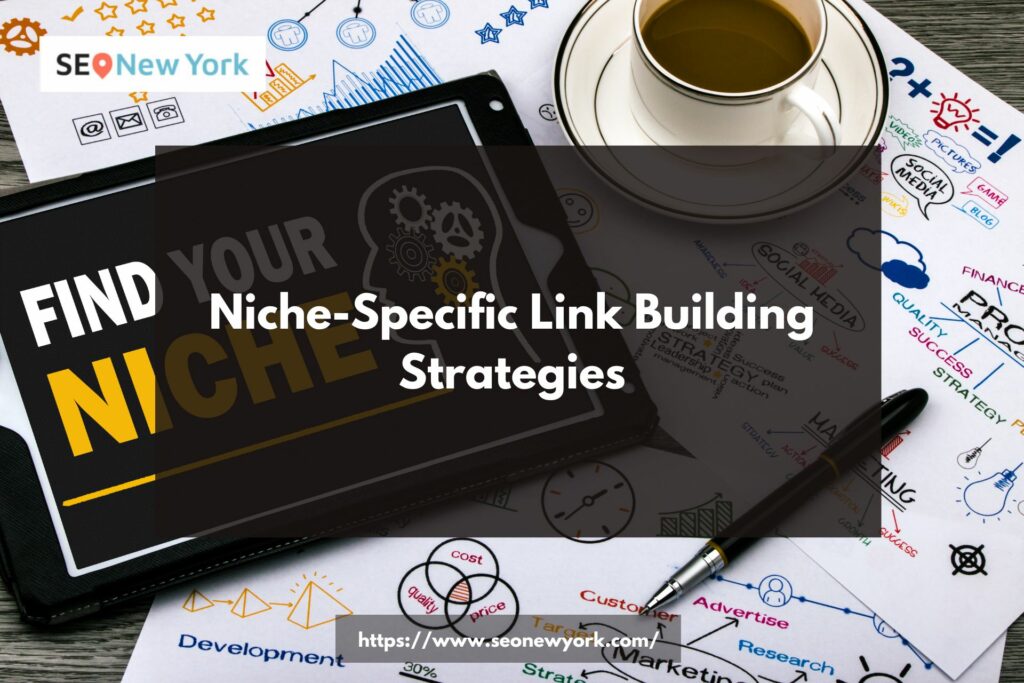In the ever-evolving landscape of digital marketing, mastering the art of niche-specific link building is the key to elevating your online presence and outperforming your competitors. In this comprehensive guide, we will explore the ins and outs of niche-specific link building strategies. From understanding the basics to advanced techniques, we’ve got you covered.
1. Understanding the Power of Niche-Specific Link Building
Niche-specific link building is the process of acquiring backlinks from websites that operate within the same industry or share a common interest. These links are highly relevant and carry significant weight in search engine algorithms. By focusing on niche-specific link building, you can establish authority and credibility in your niche.
2. The Essentials of Niche Research
To effectively build niche-specific links, you must first identify your target niche. Conduct thorough research to understand your audience, their preferences, and the websites they frequent. Use tools like Google Keyword Planner and Ahrefs to discover niche-specific keywords that can guide your content creation.
3. Crafting Exceptional Content
Creating valuable and informative content is the cornerstone of successful link building. Your content should resonate with your target audience, providing solutions to their problems and addressing their interests. Quality content naturally attracts backlinks from authoritative sources.
4. Building Relationships for Link Acquisition
Establishing relationships with industry influencers and website owners is crucial. Reach out to them through email or social media, and foster genuine connections. This approach can lead to valuable link opportunities and collaborations.
5. Leveraging Social Media for Links
Social media platforms are a goldmine for building links. Share your content on platforms relevant to your niche, engage with your audience, and encourage them to share your content. Social signals play a role in search engine rankings.
6. Guest Blogging: Your Gateway to Niche-Specific Links
Guest blogging is a tried-and-true method for acquiring niche-specific backlinks. Write high-quality guest posts for authoritative websites in your niche, and include a link back to your site in the author bio or content. This not only builds links but also establishes your expertise.
7. The Influence of Infographics and Visual Content
Infographics and visual content are highly shareable. Create visually appealing content that simplifies complex information. When others embed your infographics on their websites, it results in valuable backlinks.
8. Harnessing the Potential of Local SEO
Local SEO is a critical component of niche-specific link building, especially for businesses targeting local audiences. Register your business on local directories, encourage reviews, and obtain links from local businesses and organizations.
9. Monitoring and Measuring Your Link Building Success
Use tools like Google Analytics and Google Search Console to track your link building efforts. Monitor the traffic, rankings, and the number of acquired links. Analyze the performance of your strategies and adjust as necessary.
10. Balancing Quantity and Quality in Link Building
While quantity matters, the quality of your links is paramount. A single backlink from a reputable source can carry more weight than numerous links from low-quality websites. Focus on building authoritative links.
11. Niche Directories and Resource Pages: Hidden Gems
Niche directories and resource pages within your industry can be a source of valuable backlinks. Submit your website to these directories and ensure that your listing is complete and accurate.
12. Competitor Analysis for Link Building
Studying your competitors’ backlink profiles can reveal untapped link building opportunities. Identify websites that link to your competitors and reach out to them, highlighting the value your content can provide.
13. Avoiding Common Link Building Pitfalls
Beware of black hat SEO practices and spammy link-building techniques, as they can lead to penalties from search engines. Stay ethical and focus on building links naturally and organically.
14. The Future of Niche-Specific Link Building
As search engine algorithms evolve, niche-specific link building will continue to play a crucial role in SEO. Stay updated on industry trends and adapt your strategies to stay ahead.
15. Conclusion
Niche-specific link building is a dynamic process that requires dedication, creativity, and strategic thinking. By implementing the strategies outlined in this guide, you can enhance your online presence, establish your authority in your niche, and ultimately outrank your competitors.
FAQs
1. What is niche-specific link building? Niche-specific link building is the practice of acquiring backlinks from websites that operate within the same industry or share a common interest, enhancing the relevance and credibility of your website within that niche.
2. How can I find niche-specific keywords for my content? You can use tools like Google Keyword Planner and Ahrefs to discover niche-specific keywords that resonate with your target audience and guide your content creation.
3. Why is guest blogging an effective link-building strategy? Guest blogging allows you to contribute high-quality content to authoritative websites in your niche, enabling you to establish expertise and acquire valuable backlinks.
4. What is the importance of social media in link building? Social media platforms are an excellent way to share your content, engage with your audience, and encourage them to share your content, thus generating social signals that can positively impact your search engine rankings.
5. How can I avoid common link-building pitfalls? Avoid black hat SEO practices and spammy link-building techniques, focusing instead on ethical, natural, and organic link-building strategies to maintain a strong online presence without penalties from search engines.
